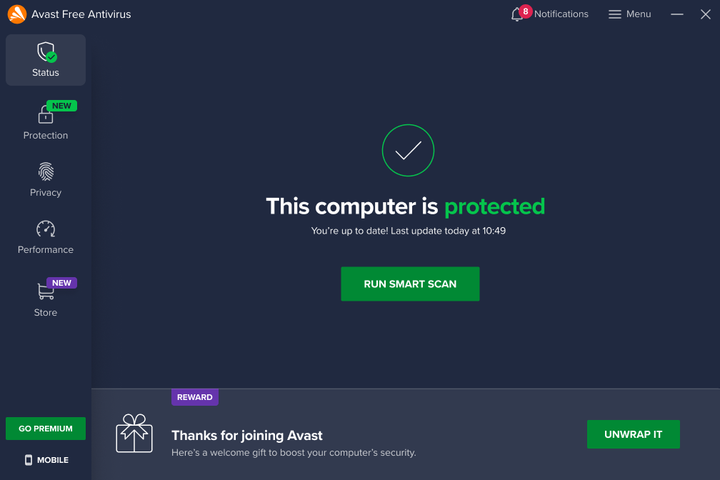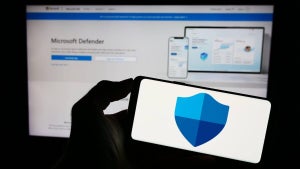How to Avoid Malware Infections from Holiday Greetings and Electronic Christmas Cards

- December 16, 2024
- Updated: December 16, 2024 at 3:28 PM
Christmas is a time for celebration—a season to reunite with loved ones, whether it’s family, lifelong friends, or those who’ve been part of your journey. It’s a time to toast to the people in your life and embrace the joy of the season.
But with all the festive cheer, we often lower our guard. The twinkling Christmas lights, decorated homes, and stockings hanging by the fireplace make the world seem kinder. Surely, no one could have bad intentions during such a joyous time, right? Unfortunately, cybercriminals see this as the perfect opportunity to strike when we’re most relaxed. It’s essential to stay vigilant and learn to protect yourself before falling victim.
Hackers exploit the holiday season to dampen the festive spirit with scams, phishing attempts, and malware attacks. During Christmas, they prey on our goodwill and generosity, using tactics designed to trick us. In this guide, we’ll reveal their two favorite methods for holiday scams and how to avoid them.
Why Online Scams Increase During the Holidays
Scammers capitalize on the stress and urgency of the holiday shopping season, sending fraudulent emails that mimic legitimate businesses, such as delivery companies, retail chains, or payment services.
These emails aim to exploit stressed users who hastily click on links without verifying their authenticity. But the traps don’t end there—scammers use various other techniques, making their schemes even more dangerous.
One common approach involves leveraging Christmas greetings and electronic holiday cards to infect your devices. Let’s explore how hackers use these tools and how to protect yourself from malicious schemes.
How to Avoid Malware in Holiday Greetings and Electronic Christmas Cards
Holiday Greeting Cards: A Hacker’s Playground
E-cards have become a popular, cost-effective way to send holiday greetings to friends and family. Recognizing this trend, scammers began exploiting the format to deceive victims. Falling into their trap could mean exposing personal data or unintentionally installing malware.
Both online greeting cards and traditional e-cards—first popularized over a decade ago—share the same goal: spreading holiday cheer. But their functionality has made them easy targets for malicious actors.
How the Scam Works
Hackers send mass emails to every address in their stolen databases (often obtained from significant data breaches). These emails feature generic holiday greetings that appear to come from a friend or family member. When unsuspecting users open them, the emails often redirect to a webpage or prompt the user to download software. At this point, the victim unwittingly falls into the trap.
Clicking the link to view the card can lead to downloading adware, spyware, or even a trojan virus onto your computer.
Spotting the Red Flags
How can you avoid falling for these traps? Be on the lookout for the following warning signs:
- Spelling or grammatical errors in the message.
- An unknown sender or email address.
- A suspicious link or attachment.
- Attachments with a file extension like “.exe,” which could execute malicious code.

Install a Reliable Antivirus to Stay Protected
Now that you know how hackers target holiday victims, the rest is up to you. Use the knowledge you’ve gained here to determine whether that email with a festive greeting is genuine or a potential trap.
Our final and most effective advice is to install an antivirus on your computer or laptop. This acts as a safety net, protecting you when all else fails. An antivirus program can be the critical line of defense that saves your holiday.
If you’re looking for a robust yet free option, Avast Free Antivirus is a top choice available for download. With its advanced security features and excellent reputation in 2024, it’s one of the best free antivirus solutions on the market.
Protect Yourself and Enjoy a Malware-Free Christmas
The holiday season is a time to celebrate with joy and peace of mind. Don’t let cybercriminals ruin your festivities. Stay vigilant, recognize phishing attempts, and equip your devices with reliable antivirus software. With tools like Avast Free Antivirus, you are safer while browsing the intenet, opening greeting emails, and enjoying the holiday spirit without worrying about digital threats.
Keep the focus on what matters most: celebrating the season with the people you care about. Happy Holidays!
Journalist specialized in technology, entertainment and video games. Writing about what I'm passionate about (gadgets, games and movies) allows me to stay sane and wake up with a smile on my face when the alarm clock goes off. PS: this is not true 100% of the time.
Latest from Chema Carvajal Sarabia
- Don't want to pay 25 dollars a month for YouTube TV? There's a trick
- How to Identify and Avoid Holiday Phishing Scams
- Does Microsoft want to invest in Bitcoin? Shareholders say no, but there's a lot to tell
- The award for best video game of 2024 goes to… here are all the winners of The Game Awards 2024!
You may also like

Microsoft fixes a serious security issue that affected Windows Defender
Read more

Don't want to pay 25 dollars a month for YouTube TV? There's a trick
Read more

Meta is willing to do whatever it takes to prevent OpenAI from becoming a for-profit company
Read more

ChatGPT 01 vs 4.0: What are the differences and when should we use one or the other
Read more

This miniseries based on real events has unexpectedly made it into the top of Netflix's most-watched list
Read more

Optimizing Your PC for the Holidays with CCleaner Free
Read more